That is not 'comfortable', it's inappropriate
My Husband’s Colleague Was Shamelessly Flirting With Him in Front of Me
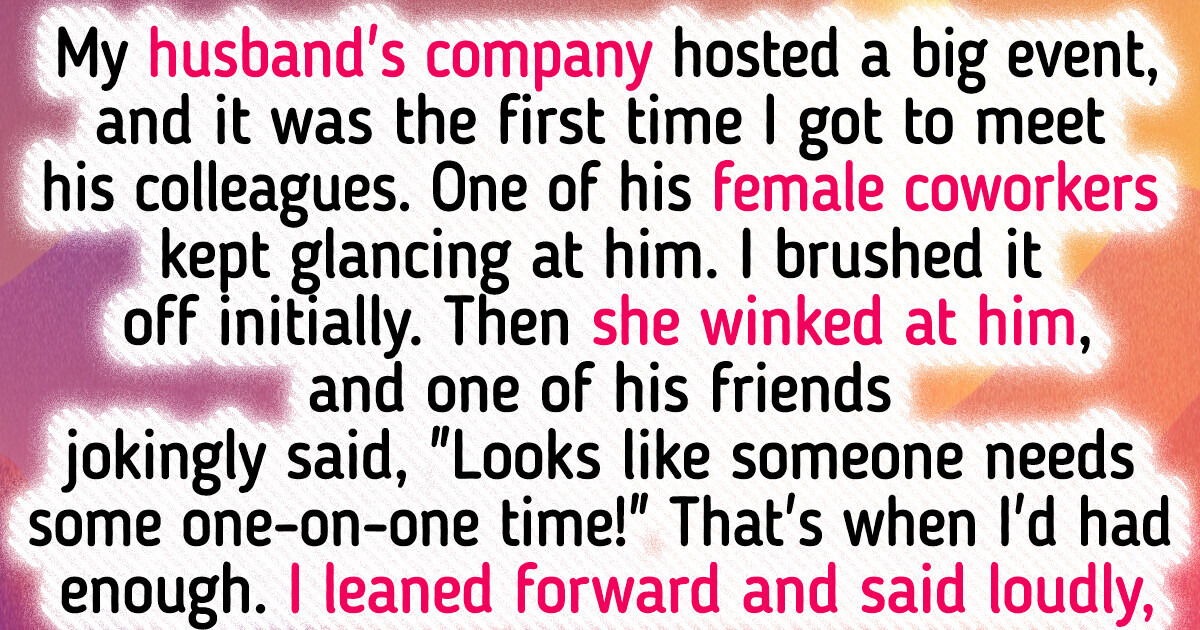
Navigating the murky waters of workplace relationships can be a tricky endeavor, especially when it involves a spouse and a colleague who seems to have a penchant for flirting. In this article, we delve into a situation where a wife, Eva, confronts her husband’s overly friendly coworker at a company event, leading to an awkward encounter and a ripple effect of tension and mixed reactions.
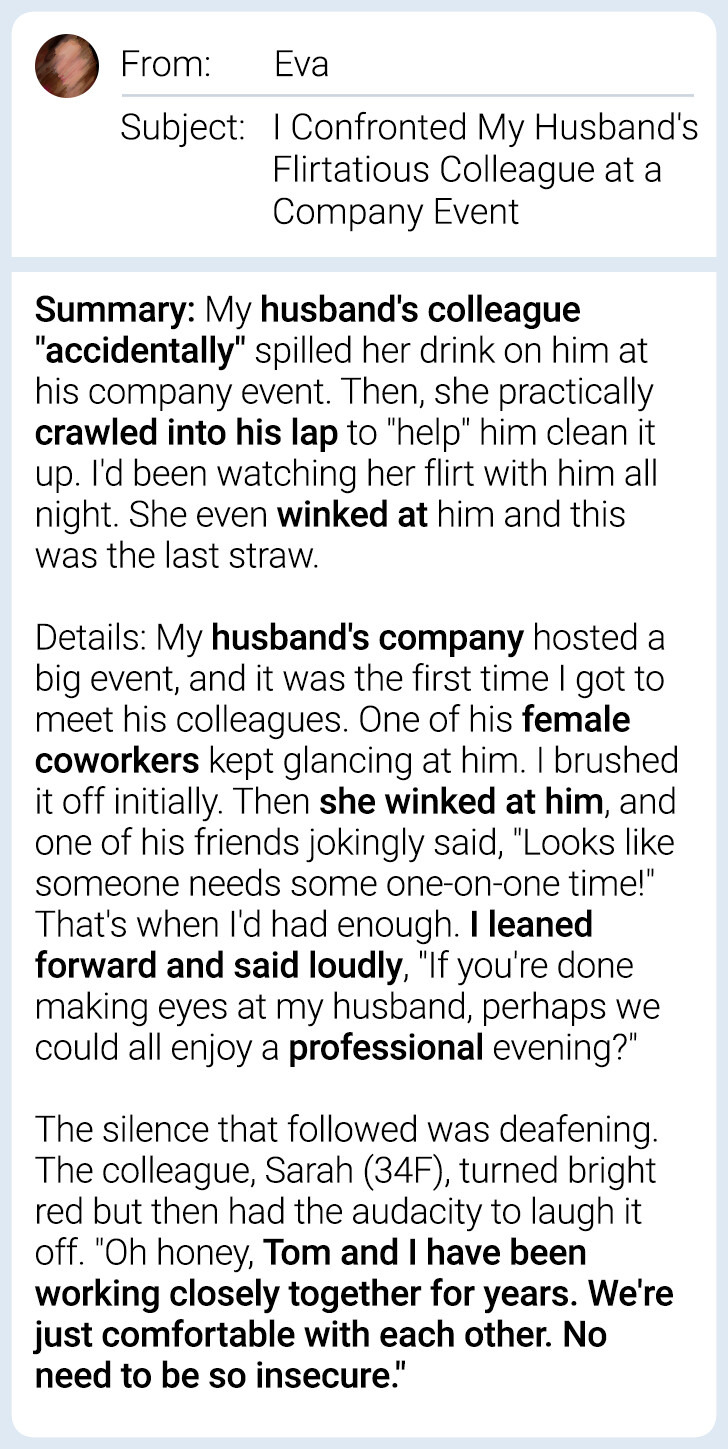
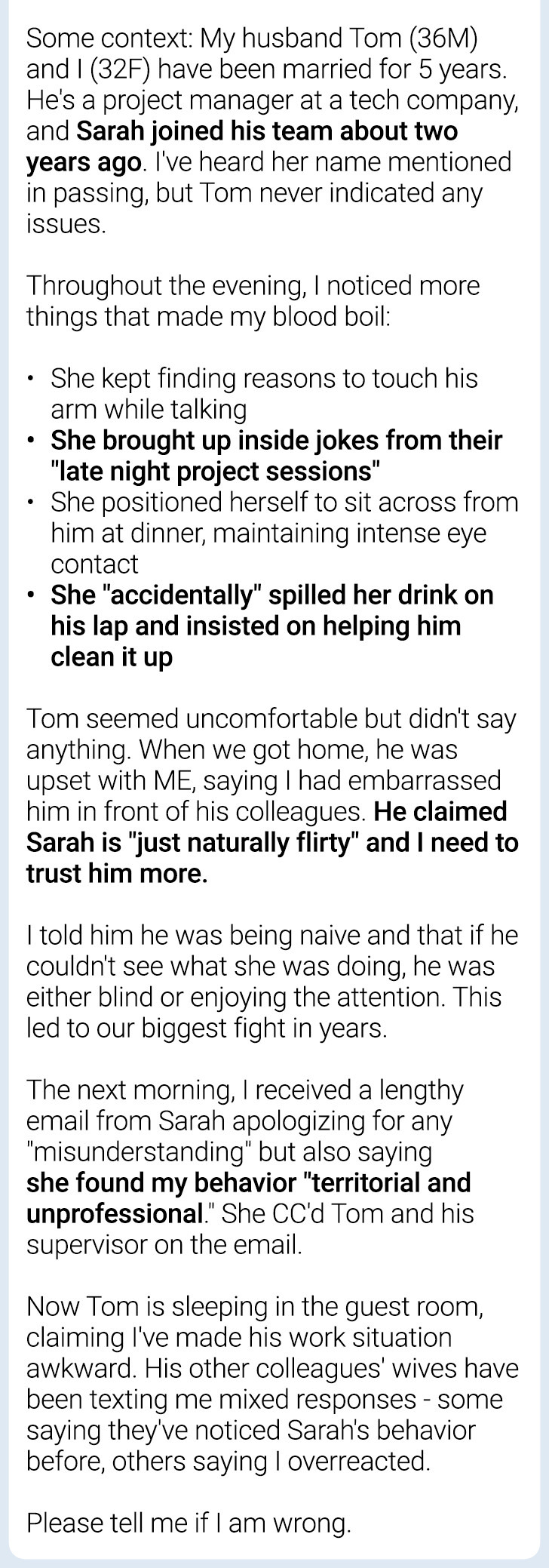
Eva, we received your letter detailing the uncomfortable encounter you experienced at your husband’s company event, and we want to first express our empathy for your situation. It’s completely understandable to feel hurt, confused, and angry when you witness someone behaving inappropriately with your spouse, especially in a professional setting. Your feelings are valid, and you are not wrong to feel protective of your relationship.
Trust, but Verify: Your Instincts Matter
You mentioned that your husband, Tom, insists Sarah is “just naturally flirty” and that you need to trust him more. Trust is undeniably the bedrock of any healthy relationship, but blind trust without open communication can be a breeding ground for resentment and insecurity. While it’s important to trust your partner and give them the benefit of the doubt, it’s equally important to trust your own instincts and intuition.
You were present at the event, you observed Sarah’s behavior firsthand, and your concerns deserve to be acknowledged and addressed, not dismissed or minimized. It’s possible that Tom is genuinely unaware of the impact of Sarah’s behavior, or that he’s downplaying it to avoid conflict. However, it’s crucial for him to understand that your feelings are real and that his response can significantly impact your trust in him.
Open and honest communication is essential in any relationship, and this situation highlights the need for you and Tom to have a candid conversation about boundaries, expectations, and how to navigate potentially uncomfortable situations in the future. Remember, a strong relationship is built on mutual respect, understanding, and a willingness to address concerns together. While it’s important to trust your partner, it’s equally important to trust your own instincts.
The Gray Area of “Harmless” Flirting

Sarah’s actions, as you described them — the constant touching, the intense eye contact, the “accidental” spill, the late-night inside jokes — go beyond mere friendliness and venture into the territory of inappropriate workplace conduct. Even if Sarah is generally flirty with everyone, her behavior towards Tom crossed a line, especially considering he’s a married man. It’s essential to recognize that even if intentions are “harmless,” unwanted flirtation can create an uncomfortable and potentially hostile environment, both for the recipient and their partner.
Workplace dynamics can be complex, and it’s not always easy to distinguish between friendly banter and inappropriate behavior. However, it’s crucial to be mindful of the impact our actions can have on others and to respect professional boundaries. In this case, Sarah’s behavior seems to have disregarded those boundaries, creating an awkward situation for Tom and causing you distress.
It’s important for workplaces to have clear policies regarding appropriate conduct and for individuals to be held accountable for their actions. This not only protects employees from harassment but also fosters a more respectful and professional work environment. Even if Sarah is generally flirty, her behavior towards Tom crossed a line, especially given that he’s a married man.
Confrontation: A Double-Edged Sword
Your decision to confront Sarah directly was undoubtedly a bold one, and it speaks to your courage and your commitment to protecting your relationship. While some may perceive it as “overreacting,” we believe you had every right to stand up for yourself and your relationship. It’s understandable to feel a surge of protectiveness when you witness someone behaving inappropriately with your partner, and sometimes a direct confrontation can be a way to assert your boundaries and make it clear that such behavior is unacceptable.
However, public confrontations can be unpredictable and may sometimes escalate the situation further, as it seems to have done in your case. It’s important to carefully weigh the potential consequences and consider alternative approaches, such as speaking to your husband privately first or, if the behavior persists, involving HR or a trusted supervisor.
In some cases, a direct confrontation might be necessary to put an end to the unwanted behavior, but it’s important to do so in a way that is assertive yet respectful. Consider choosing a private setting to address the issue calmly and directly, focusing on the impact of the person’s actions rather than resorting to personal attacks. While some may perceive it as “overreacting,” we believe you had every right to stand up for yourself and your relationship.
The Aftermath: Dealing with the Fallout

The aftermath of the event, with Tom sleeping in the guest room and receiving mixed responses from other colleagues’ wives, highlights the complexities of workplace dynamics and the challenges of navigating social situations. It’s unfortunate that Tom seems more upset with you for “embarrassing” him than with Sarah for her inappropriate behavior. This is a crucial point to address in your conversations with him.
He needs to understand that your reaction stemmed from a place of love and concern, not insecurity or jealousy. It’s possible that Tom is feeling caught in the middle and is unsure how to handle the situation, but it’s important for him to prioritize your feelings and acknowledge the validity of your concerns.
As for the colleagues’ wives, their responses reflect the differing perspectives on workplace conduct and the challenges of navigating such situations. Some may have experienced similar situations themselves, while others may be more inclined to avoid conflict or maintain social harmony. It’s important to remember that you are not alone in this and that many people have faced similar challenges. It’s unfortunate that Tom seems more upset with you for “embarrassing” him than with Sarah for her inappropriate behavior
Moving Forward: Open Communication and Setting Boundaries

We're only hearing the husbands' feelings from the wife's point of view. To me it seems she is insecure.
Eva, this situation has revealed some cracks in your communication with Tom that need to be addressed. It’s imperative that you both engage in open and honest dialogue about what happened, how it made each of you feel, and what boundaries need to be established moving forward. Tom needs to understand the impact of Sarah’s actions on you and take responsibility for setting clear boundaries with her at work.
This might involve limiting their interactions to strictly professional matters, avoiding one-on-one meetings or late-night work sessions, and clearly communicating his commitment to his marriage. If he’s unwilling to acknowledge your concerns or address the situation, it might be beneficial to seek couples counseling to help you navigate these challenges together.

A neutral third party can provide a safe space for you to communicate your feelings, understand each other’s perspectives, and develop strategies for rebuilding trust and strengthening your relationship. Remember, open communication, mutual respect, and a willingness to work together are essential for overcoming challenges and maintaining a healthy and fulfilling relationship. It’s imperative that you both engage in open and honest dialogue about what happened, how it made each of you feel, and what boundaries need to be established moving forward.
To learn more about recognizing the signs of a woman’s interest in your husband, and how to navigate these potentially tricky situations, don’t wait until it’s too late to protect your relationship and check our article.
Comments
Related Reads
I’m Living a Child-Free Life, and My Parents Handed My Inheritance to My Brother—So I Played My Own Game and Won

12 People Who Will Teach You to Never Mess With Them

My Stepson Wouldn’t Help Around the House — So I Took His Gadgets Away
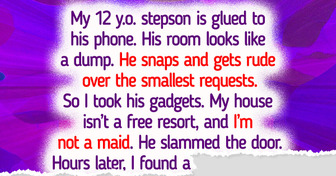
I Refuse to Apologize to My Stepdaughter, I Did Nothing Wrong

My Husband’s Family Treats Me Like a Servant — I’ve Had Enough
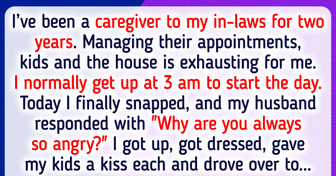
My Husband Betrayed Me So Hard That I Almost Died, Now Everything Blew Up in His Face

I Have to Tolerate My In-Laws’ Entitled Behavior Because They Helped Us With Money

15 Moments That Show Kindness Is Quiet but Changes Everything

18 Pets Who Proved They Understand the World Much Better Than We Think

15 Success Moments From Strangers That Deserve All the Golden Buzzers in the World

I Won’t Sacrifice My Last Good Years Because My Son Refuses to Grow Up
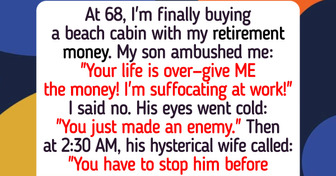
15 “How We Met” Stories Destined to Become Family Legends



